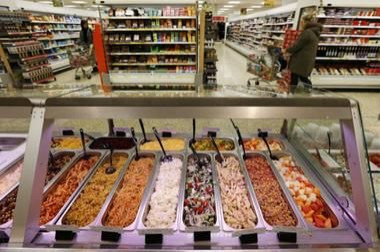Horsemeat Lasagna: Findus Recall After Horse & Animal Painkillers Turn Up In UK Frozen Dinners

Would anybody like some horsemeat lasagna? Probably not, but if you’ve eaten frozen lasagna in Great Britain recently, that’s most likely what you had.
Ground beef has been suspect in the United Kingdom since a recent study revealed that horsemeat was being mixed into it.
Now The Sun is reporting that Findus brand lasagna is being made with 99 percent horsemeat in some cases, but not only that — traces of animal painkiller phenylbutazone were also found in the frozen dinner. The painkiller is linked to harmful effects in humans and potentially cancer.
The frozen dishes that have been contaminated are Findus Beef Lasagne, 320g, 360g and 500g sizes.
As a result, the food giant has been ordered to test their product for a cancer-causing painkiller that is used by vets, The Sun said.
Customers have been warned to take the pre-cooked meals back to the store, The Sun said.
Unfortunately, Findus doesn’t seem to have any answers for their concerned customers: They don’t know how long the contaminated products have been on sale nor do they know how many people have bought them.
When tests were done on 18 sample meals, 11 had 60 percent horsemeat while one was essentially only horsemeat, the British news site added.
The Labour opposition's shadow environment secretary, Mary Creagh, accused the government of being “complacent” over the horsemeat scandal:
The Sun quoted her as saying:
“British ministers are asleep on the job. This is no longer just a food safety issue but possibly an international criminal trade.”
A spokesman for Findus said to The Sun: “Samples were taken from a variety of products. Some samples were as low as 5 per cent and one was 99 per cent.”
The contaminated meat was allegedly bought from Comigel, a French meat supplier.
Catherine Brown, head of the Food Standards Agency, told the BBC: "In order to get to the bottom of this, we're going to be requiring every company to test every product line.
"If we find any other cases, we will pursue our investigations vigorously until we find out what's happened and put a stop to it."
The supermarket chain Tesco was forced to take Everyday Value Spaghetti Bolognese off the shelves because they bought the same meat from Metz, in northeast France.
© Copyright IBTimes 2024. All rights reserved.






















